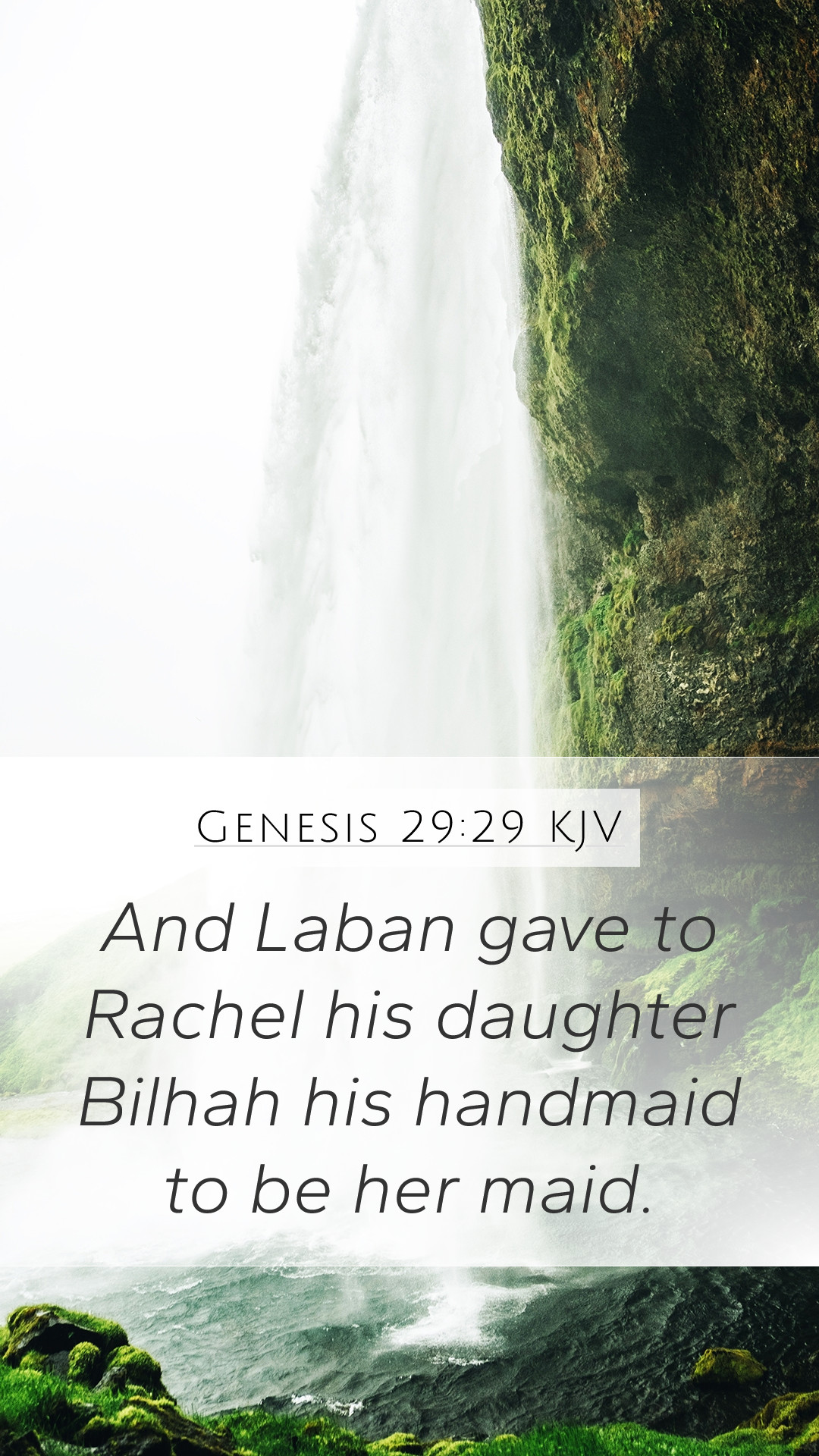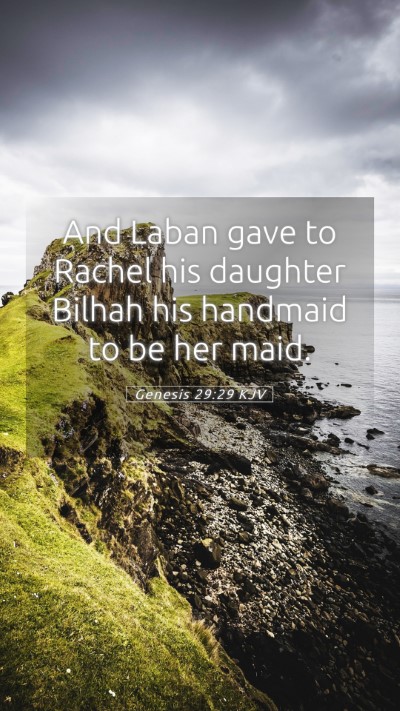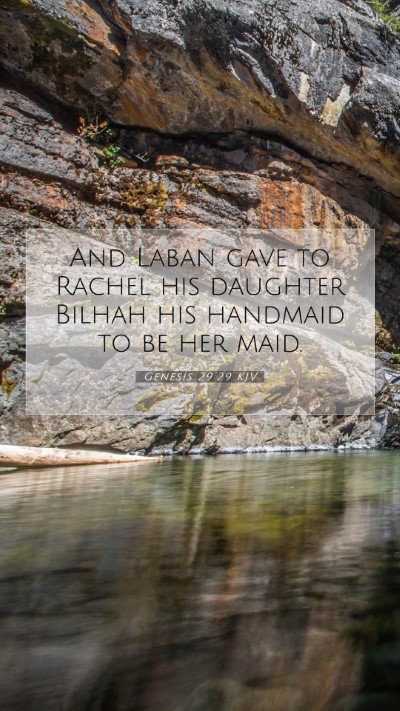Bible Verse Meaning and Commentary for Genesis 29:29
Genesis 29:29 states: "And Laban gave to Rachel his daughter Bilhah his handmaid to be her maid." This verse is a significant moment in the narrative of Jacob's life, showcasing the cultural practices of the time and the dynamics within Jacob's family. Understanding this verse requires a thorough Bible verse analysis involving both historical and theological insights.
Contextual Background
This verse occurs within the larger narrative of Jacob's marriage to Leah and Rachel, daughters of Laban. The backdrop of this passage illustrates the complexities of familial relations and the customs of marriage in ancient times. The practice of giving handmaids to wives as surrogates was common in the Near Eastern culture, reflecting societal norms regarding lineage and childbearing.
Interpretations from Public Domain Commentaries
Matthew Henry's Commentary
Matthew Henry suggests that this verse illustrates Laban's cunning nature, as he not only gave Rachel his daughter in marriage but also provided Bilhah, indicating that Laban sought to maintain control over the situation. Henry emphasizes the human propensity to manipulate circumstances, which was prevalent in this family dynamic.
Albert Barnes' Notes
Albert Barnes offers an interpretation focusing on the significance of Bilhah's role. He points out that Bilhah, as a handmaid, symbolizes the subservient roles women often occupied. Barnes also comments on how the use of handmaids like Bilhah was a means to further establish family lines and fulfill God's promise of numerous descendants to Jacob.
Adam Clarke's Commentary
Adam Clarke elaborates on the relationships between the characters, highlighting Laban's intention to ensure that his daughters would build connections with Jacob. He notes that this relationship sets the stage for future conflicts within the family, particularly regarding favoritism and the struggles over love and recognition among the wives.
Key Themes and Insights
- Familial Relationships: The complexities of family ties are evident in the marriages and interpersonal dynamics between Jacob, Leah, and Rachel.
- Cultural Practices: The practice of giving handmaids reflects the societal norms and challenges women faced regarding childbirth and marriage.
- Divine Promises: This passage relates to the broader theme of God's promise to Jacob regarding his descendants, which is intertwined with the actions and relationships in this narrative.
Bible Study Insights
For those engaged in Bible study groups or seeking bible study resources, examining Genesis 29:29 provides a rich opportunity to discuss the themes of manipulation, love, and family dynamics. Reflection upon this passage can enhance bible study lessons by prompting questions about how relationships and cultural practices influence individual destinies.
Application and Reflection
As modern readers, we can extract lessons from Genesis 29:29 related to how we view relationships, the importance of integrity, and God's overarching plan in our lives. Applying Bible verses to daily life often involves deciphering historical contexts, much like how Jacob's experiences taught him about faithfulness amidst strife.
Cross-References
- Genesis 30:1-3 - Discusses the rivalry between Rachel and Leah concerning childbearing.
- Genesis 16:1-4 - Explores the theme of using handmaids to bear children, highlighting a similar cultural context.
- 1 Corinthians 7:2 - Addresses marital relationships and cultural practices related to marriage.
Conclusion
This verse from Genesis provides an essential Bible verse explanation that enriches our understanding of scripture. As we study and reflect on the implications of Jacob’s family dynamics, we gain deeper insights into both historical context and modern application of biblical principles. Engaging with such texts can strengthen our bible study insights as we seek to understand the narratives shaping our faith.


